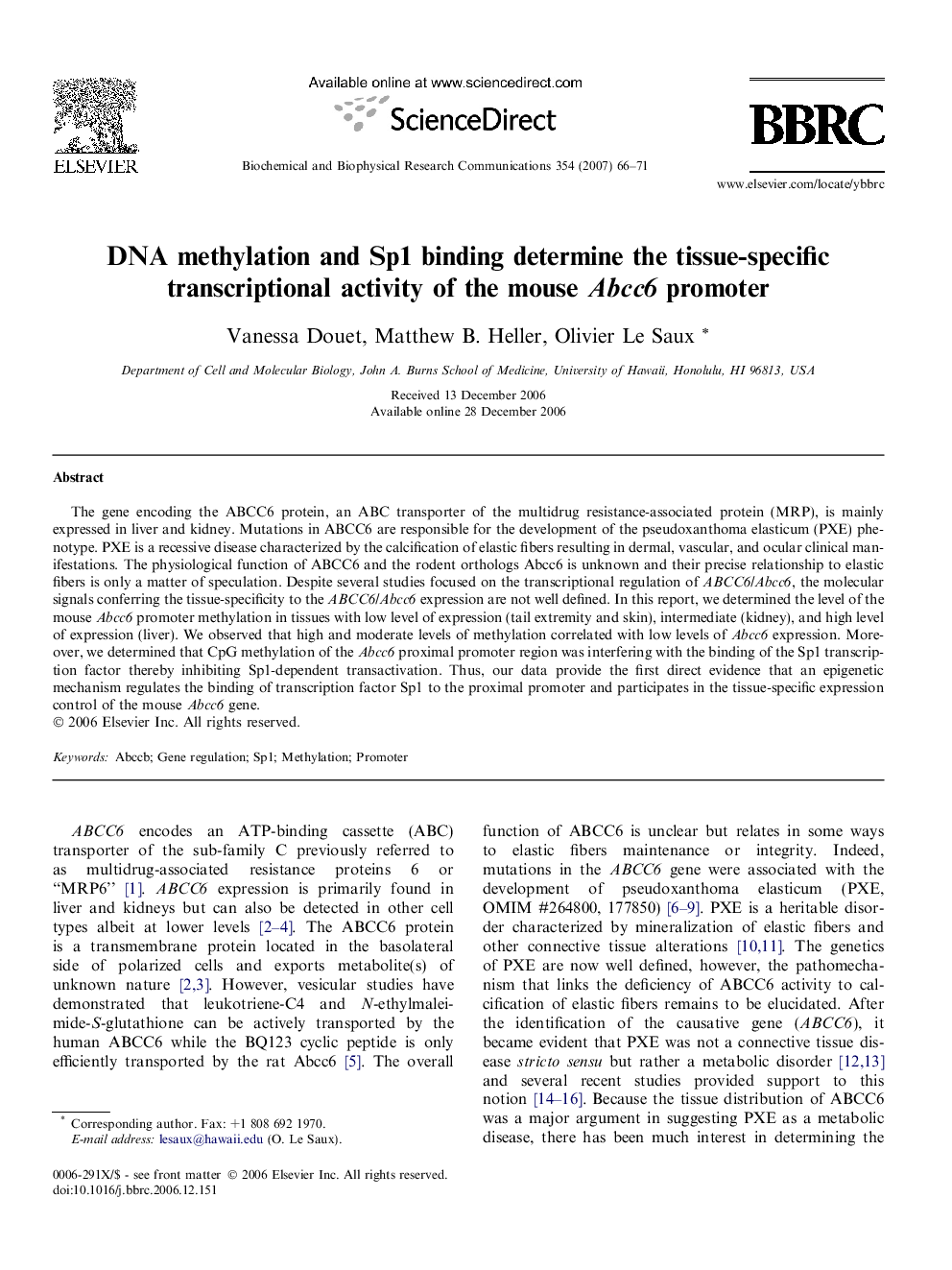| Article ID | Journal | Published Year | Pages | File Type |
|---|---|---|---|---|
| 1939515 | Biochemical and Biophysical Research Communications | 2007 | 6 Pages |
The gene encoding the ABCC6 protein, an ABC transporter of the multidrug resistance-associated protein (MRP), is mainly expressed in liver and kidney. Mutations in ABCC6 are responsible for the development of the pseudoxanthoma elasticum (PXE) phenotype. PXE is a recessive disease characterized by the calcification of elastic fibers resulting in dermal, vascular, and ocular clinical manifestations. The physiological function of ABCC6 and the rodent orthologs Abcc6 is unknown and their precise relationship to elastic fibers is only a matter of speculation. Despite several studies focused on the transcriptional regulation of ABCC6/Abcc6, the molecular signals conferring the tissue-specificity to the ABCC6/Abcc6 expression are not well defined. In this report, we determined the level of the mouse Abcc6 promoter methylation in tissues with low level of expression (tail extremity and skin), intermediate (kidney), and high level of expression (liver). We observed that high and moderate levels of methylation correlated with low levels of Abcc6 expression. Moreover, we determined that CpG methylation of the Abcc6 proximal promoter region was interfering with the binding of the Sp1 transcription factor thereby inhibiting Sp1-dependent transactivation. Thus, our data provide the first direct evidence that an epigenetic mechanism regulates the binding of transcription factor Sp1 to the proximal promoter and participates in the tissue-specific expression control of the mouse Abcc6 gene.
